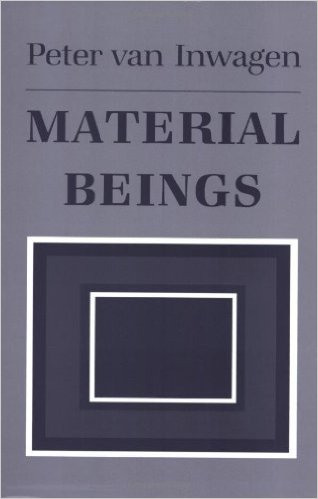Humans are said to be unique in virtue of our beliefs, desires, and language use. Or so we thought. That was until we envisaged the possibility of machines doing what we do and doing it better. A.I. paranoia has fed Hollywood and conspiracy theorists in equal measure, but Alex Rosenberg argues that the problem with A.I. fantasies is our presumption that beliefs and desires can be replicated. They can’t and that’s because they don’t exist, not even in humans. Thus, the threat to human distinctiveness comes not from the possibility of A.I. but the possibility that what we think makes us unique is an illusion: …we are convinced we have…
-
-
Voices in Our Heads?
James Krugel is Professor of Hebrew Literature at Harvard University. Krugel suggests that neuroscience can lend some understanding to biblical scholarship on how human beings might hear the voice of God. In a recent interview, Krugel suggests that the ancient worldview of the prophets included the idea that the mind could be penetrated by spiritual entities: The human mind could be penetrated by outside forces. Not only by God—who is sometimes depicted as going inside people, “probing their kidneys and heart” to find out what they’re really thinking—but by various sorts of “spirits.” Some of them were benign, but others were wicked spirits dispatched by Satan to take over. They…
-
Dogish?
To varying degrees, I have learned Greek, Latin, German, French, and English, but dogish lies out of my reach. My grandmother spoke to her dog, but the snuffly little pug’s responses never sounded anything like what my grandmother said to him. She said things like, “I do before to be a hudra hud,” which meant “good dog.” To request a photograph of the dog one would ask if it minded having its “wotytook.” As a boy, I was sure it was a real language, but it wasn’t – twas fun, but not dogish. Con Slobodchikoff says he has learnt the real thing, at least some of it, and only prairie…
-
Notes: Body, Soul, and Human Life: The Nature of Humanity in the Bible by Joel Green
Joel Green’s Thesis: “If, as is often alleged, neuroscientists have discredited a dualist interpretation of the human person, I want to explore the usual corollary that, in doing so, they have also discredited the biblical faith. It will become clear that I take the former claim to be true, the latter to be false.”[1] According to Green, the sciences have discredited a dualist ontology of the human person. Green argues that human identity is not grounded in the reference to a substantive, embodied soul but to a set of capacities or functions enabled by a physical base.[2] Green thinks a non-reductive physicalism is compatible with Christian belief and that the…
-
Naturalism and the Language of Thought Hypothesis
According to naturalism, the world can be adequately described in terms of what is physical. But what is a good naturalistic explanation of thought? Beliefs, desires, and other propositional attitudes appear not to fit within the physical universe. While the physical universe can be analyzed in terms of causation, and laws of nature, the life of the mind appears to involve more. What it is to reason about some action seems very different to what it is for a neuron to initiate a causal chain that results in an action. If causation cannot account for reasoning, then what it is that does the reasoning cannot be accounted for in physical…
-
Plastic Theseus
The famed puzzle about the Theseus’ ship getting its parts replaced involves an assumption: the ship is made of wood and so are the replacement parts. But what if the parts used to replace the old parts are not wood, but plastic? Perhaps, over time, each wooden part of the ship is replaced with a plastic part. We can even follow the story where it usually goes: the old parts are reassembled in some warehouse somewhere. There lies in the warehouse an old ship with all the old wooden parts while at sea a plastic ship goes about its business bearing the famous name. The question is: does this alter…
-
Notes: Material Beings by Peter van Inwagen
“There are no visible objects but men and women and cats and other living organisms… There are no tables or books or rocks or hands or legs.”[1] 10 metaphysical presuppositions: 1. The identity relation is absolute and allows for no relative identity. Absolute identity holds that for any x, x is identical to y iff all that is true of x is true of y. Relative identity is the denial of absolute identity and suggests that identity is sortal relative. 2. Four dimensionalism, the thesis that an object’s parts include its temporal parts (time-slices) is false. 3. Logic is an ideal but the use of non-standard logics in consideration of…
-
The Endless Search For Empirical Evidence Against Folk Psychology
Many arguments for physicalism, the view that all that exists is describable in terms of physics, assume that, at some point, there will be enough convincing empirical evidence to show that folk psychology, the view that mental stuff or souls exist, is false. Let’s be clear: this would be a monumental feat and, so far, no one has come close. And, absent any empirical evidence, folk psychology carries on. So, what kind of evidence would do it? You can’t exactly show anyone that there is no mental/soulish stuff in the world. It’s no good pointing at a brain and saying, “see! There’s no soul there!” What you would need is…



